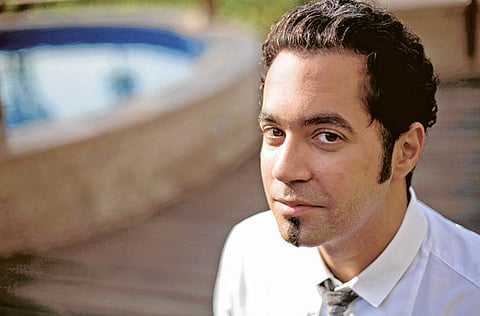Independent filmmakers 'need support, platforms'
Director seeks government help and subsidies to promote movies

Abu Dhabi: More films from the region must touch on more humanitarian subjects if greater understanding about Arabs is to be reached, according to Mahmoud Ka'abour, filmmaker of increasingly popular documentary, Teta Alf Marra.
"After 9/11, many filmmakers began creating works that had a lot of political content and rhetoric as a reaction to what was happening. But I think the best way to reach out and show a different side to the region is through works such as Teta, Alf Marra," Ka'abour said.
Interest
The Lebanese filmmaker, who is based in Dubai, will lead a panel discussion at the Tribeca Film Festival in New York on April 25 on the development and where the Arab film industry currently stands, following a screening of his latest film, Teta, Alf Marra.
The 48-minute documentary, about Ka'abour's Beiruti grandmother, is a UAE/Qatar/Lebanon co-production film made with the financial support of the Doha Film Institute and Screen Institute Beirut. It was made by Veritas Films, founded by Ka'abour, and edited in its Abu Dhabi office.
"While there is already interest about films from the region, unfortunately, independent filmmakers here aren't given the support and platforms they need to show their works.
"That makes it very difficult for us to have a strong, sustainable industry because we currently don't have a platform outside film festivals. One way governments can support such films is to subsidise various theatres to encourage people to watch them," the filmmaker, who was nominated for The Best Arab Filmmaker Award at the Doha Tribeca, said.
The film has been garnering many positive reviews internationally with sold out screenings in Tunis, Rotterdam, and Damascus as well as two Audience Awards for Best Documentary from Doha Tribeca Film Festival and DOX BOX Film Fest. It was also chosen to open Mathaf: Arab Museum for Modern Arts in Qatar.


